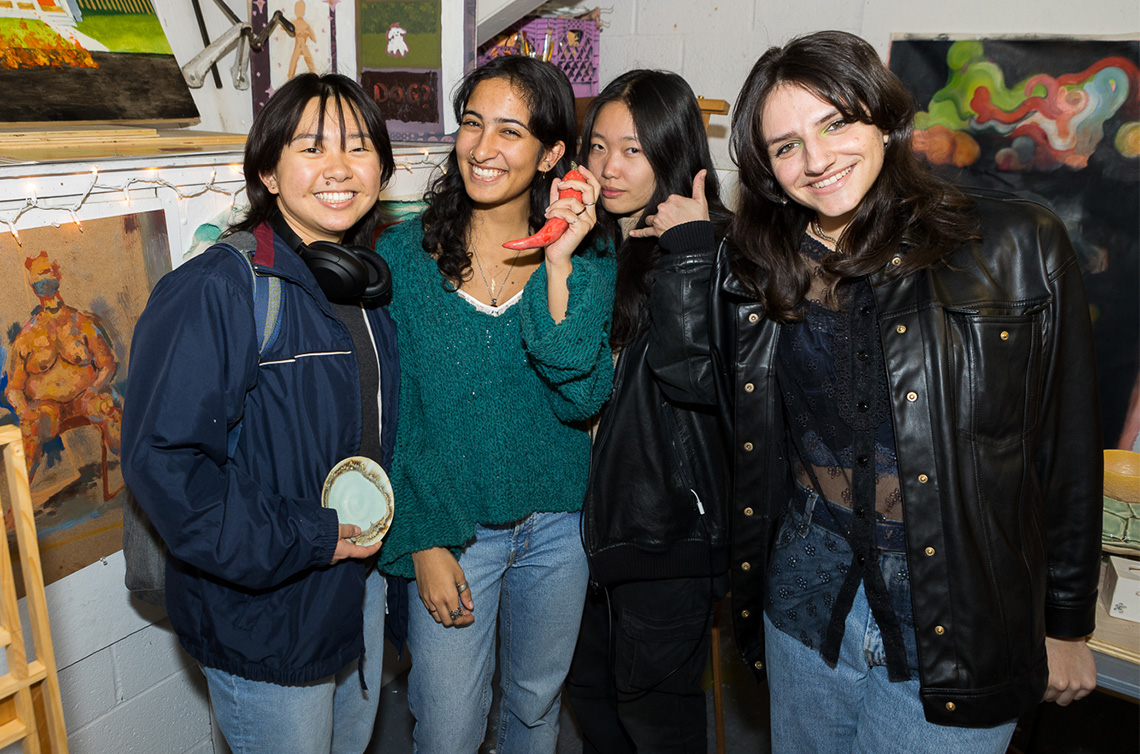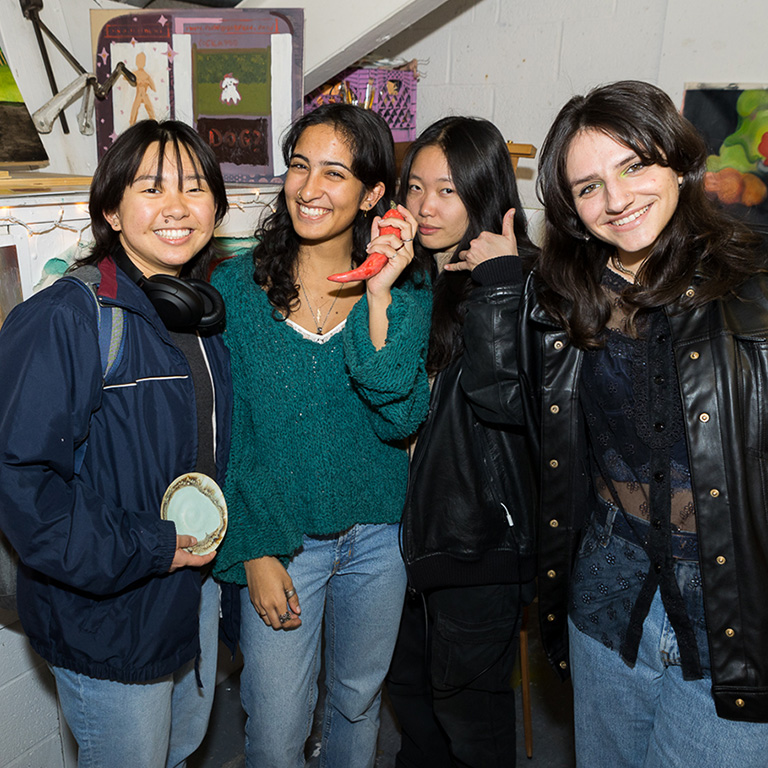Spring 2021 Elective Courses
Please find below a list of all advanced art electives with abbreviated descriptions for Spring 2021. For complete course descriptions and additional information please refer to SIO.
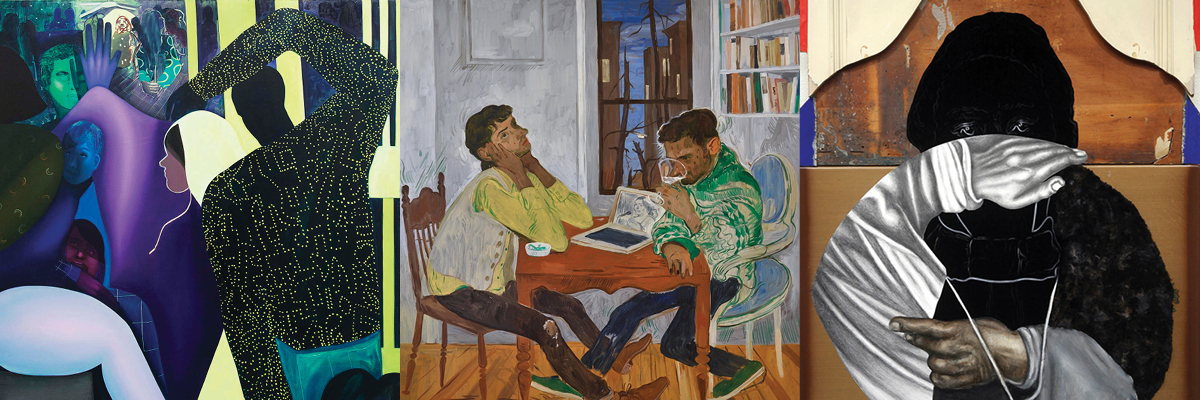
Concepts of Figuration (60451)
TR 2:10-5:00pm
Professor Devan Shimoyama
This course encourages creative exploration of the human image beyond observational figure drawing. We will be thinking of the figure as a symbol to explore narrative, anthropological, cultural, sociopolitical, gender, and dream-life imaging. Through these lenses the figure becomes primary to the understanding of personal or group identity, place, sexuality and gender identification. Figure drawing is open to the use of traditional and extreme image making methods including observational and fictional representations or other conceptual premises relevant to the successful presentation of privately held concerns. Emphasis will be on experimentation with both material and image. The class will consist of studio time, critique, readings, and discussion.
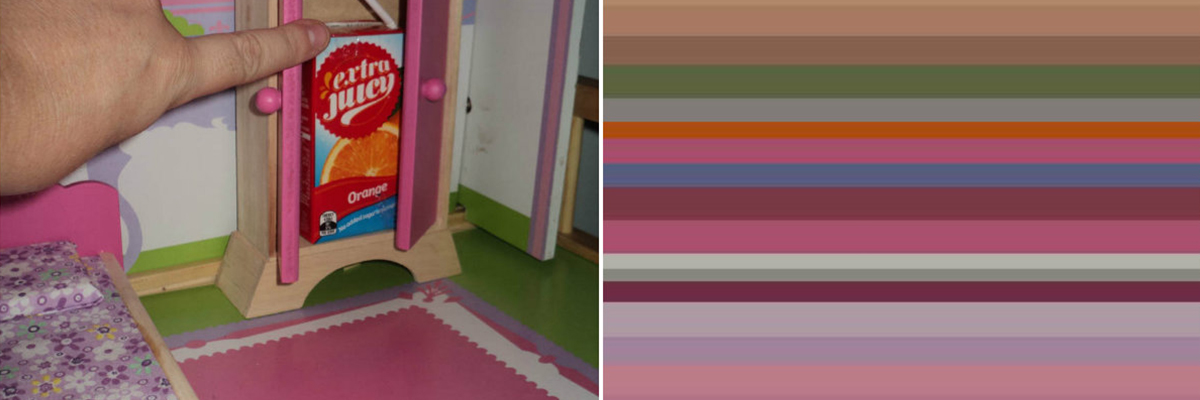
Color (60452)
MW 8:00-10:50am
Professor Clayton Merrell
In this advanced course, students will learn to employ a wide range of color theories and color systems through hands-on exercises and studies. Numerous quick studies will be done in paint, collage and digital media. These exercises will be aimed at mastering a variety of color approaches that will be applicable to each student’s own artistic practice. Students will develop, based on their own interests, a cohesive body of work in which to practice and expand on the skills learned through the directed exercises. Studio work will be augmented by lectures, demonstrations, critiques, readings and critical discussion of writings about color.

Artists Make Pictures: Open Photography (60465)
TR 8:00-10:50am
Professor Katherine Hubbard
Artists Make Pictures is an open photography course structured to support students of all disciplines who want to refine their relationship to the camera and develop a substantial photographic project— engaging in a rigorous conversation and examination of contemporary photography in the expanded field. Artists Make Pictures will use the case study model to slow down and closely consider the writing and photographic work of a range of contemporary artists. This course is for the dedicated and hardworking student who wants to work closely with the professor in developing their work. Participation in this course grants students access to the course technology kit including a professional DSLR camera, two lenses and a tripod.
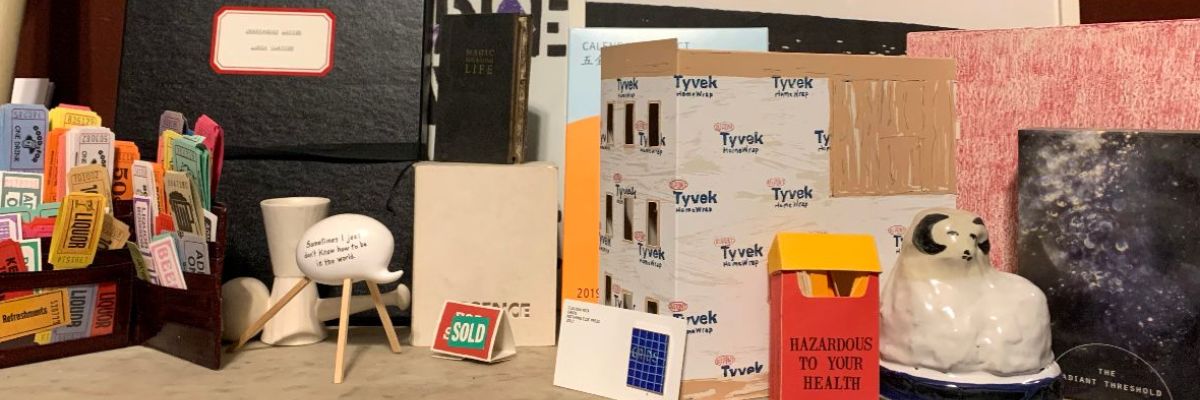
Publishing as Artistic Practice (In Quarantine) (60466)
MW 2:10-5:00pm
Professors Imin Yeh and Kellie Hames
This course will look at the history of artist multiples from artist books and zines, mail and subscription-based practices, and editioned objects. Students will be introduced to techniques in traditional bookbinding, zine making as well as design and layout an artist book for mass publication. Studio work will focus on materials and processes that can be found and done at home as well as designing projects that utilize print-on-demand product services. We will discuss the economy and business structure behind independent publishing, looking into contemporary artists who are running their own presses, an emergence of art book and zine fairs, and envisioning alternative distribution opportunities for our artworks.
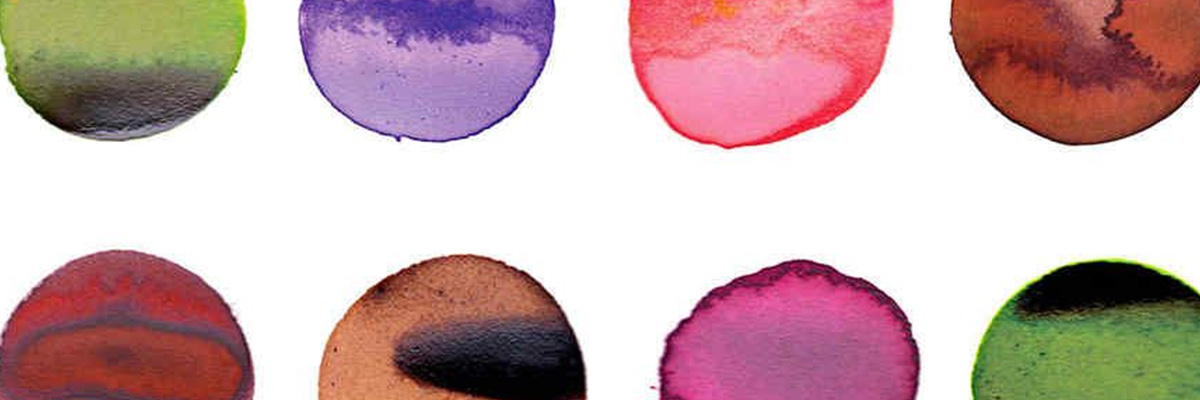
Survivalists: Print/Draw (60473)
F 8:00-10:50am & 2:10-5:00pm
Professor Kim Beck
Survivalists prepare for emergencies and disruptions in the social order and learn to source what’s available. Taking place during a global pandemic, this course will facilitate ways to make art off the grid, or using the grid. We will experiment with making prints and drawings from the wilds of forests and alleyways, to the wilds of kitchens and dank basement laundry rooms. We will forage materials to make ink, explore walking as an art practice and make prints from the dryer lint. We will expand our idea of what print and drawing might be to reflect our time. Workshops, readings and presentations, guest herbalists, mycologists, and artists, help frame a class bent on helping students experiment with new ways to make their work.
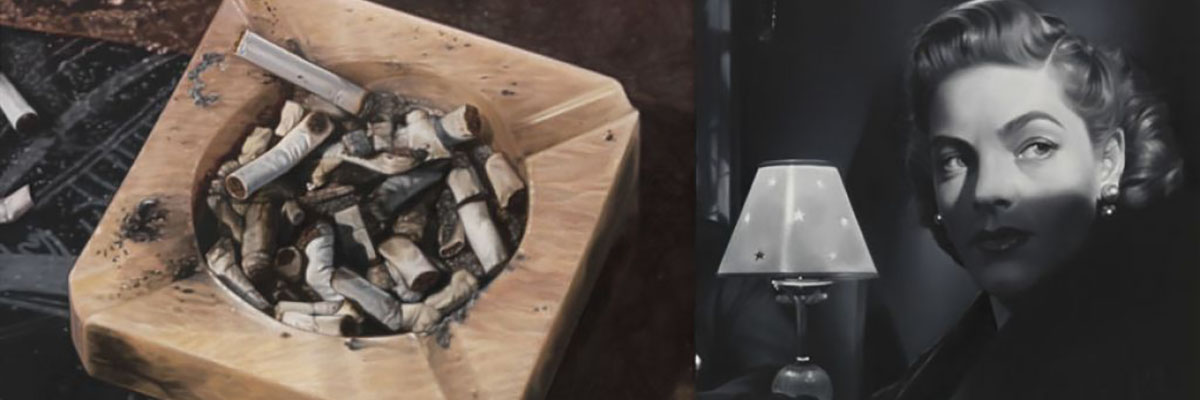
Static Cinema (60477)
TR 6:30-9:20pm
Professor Lyndon Barrois Jr.
This course will examine the ways in which painting has influenced cinema, while also considering how filmic qualities (its visual language, composition, scenography, and elements of narrative) have been imprinted on static works of art. Primary methods will be grounded in two-dimensional drawing and painting, but will remain open to alternative and hybrid methods of image making. Relevant readings, and screenings of films that address the relationship between still and moving images will serve as guides, as well as numerous examples of contemporary artists who include cinema aesthetics into their practices. Projects will be based on selected conventions of movie making. Aimed at advanced students interested in taking a closer look at deconstructing arguably the most impressionable medium of our time.
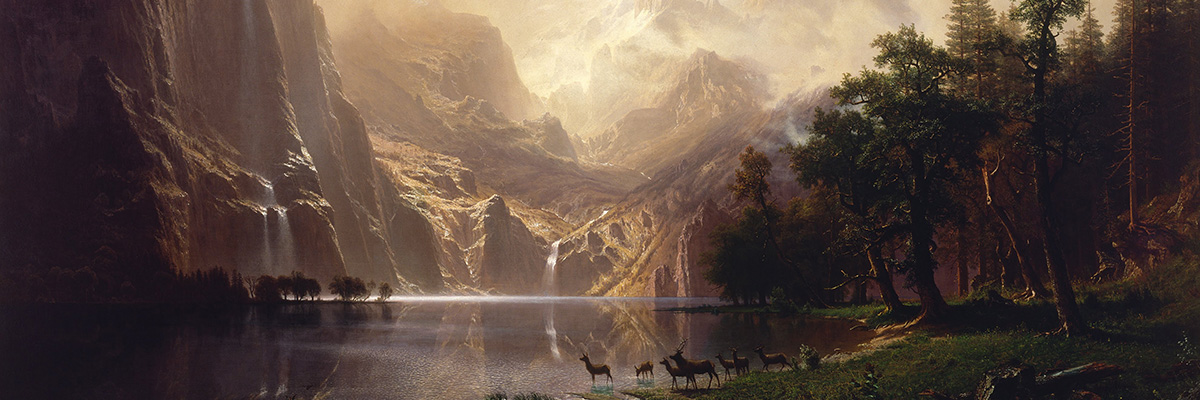
Nation’s Nature: Art, Environment and the American Landscape (60357)
R 11:40am-2:00pm
Professor Kim Beck
This course will explore how representations of the American landscape create an ever-shifting national identity. Slogans like “Make America Great Again” trade on nostalgia and a desire for a fixed narrative but ignore the experience of marginalized groups. The actual environment, meanwhile, is being destroyed by the same people who use it as a symbol of power and purity. From painting to photography, print, animation, sculpture and social practice, we will consider how art has fueled or challenged nationalism, patriotism, American exceptionalism. Readings in historical texts, narrative essays and cultural geography, along with discussions and presentations will provide art students a broader context for their own research.
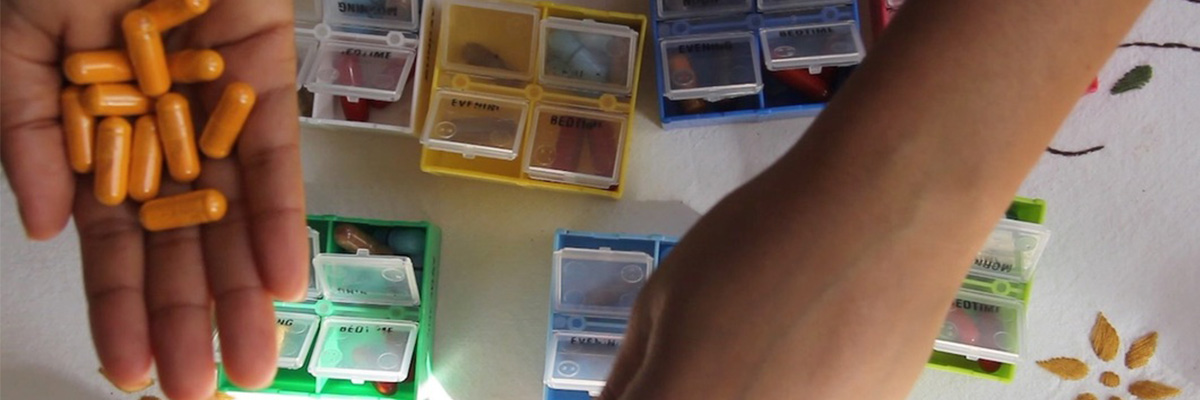
The Precarious Body in Contemporary Art (60372)
T 6:30-9:20pm
Professor Melissa Ragona
This seminar will examine images and projects in contemporary art that deal with debates concerning ideas that had already begun brewing in the 1980s and early 90s. Artists and theorists tended to address issues of institutional violence as “discourse,” or to explore ideas of difference and alterity as “abjection.” More recently, the idea of precarity has taken central stage as a way of thinking through, and taking action against, the kinds of structural oppression that deem certain groups of people vulnerable to repeated forms of aggression, poverty, and displacement without protection. A major part of the course will examine how contemporary artists address the precarious body as an important site for political and aesthetic resistance. (Image: Carolyn Lazard, CRIP TIME (2018) [HD video, sound, color 10 minutes])
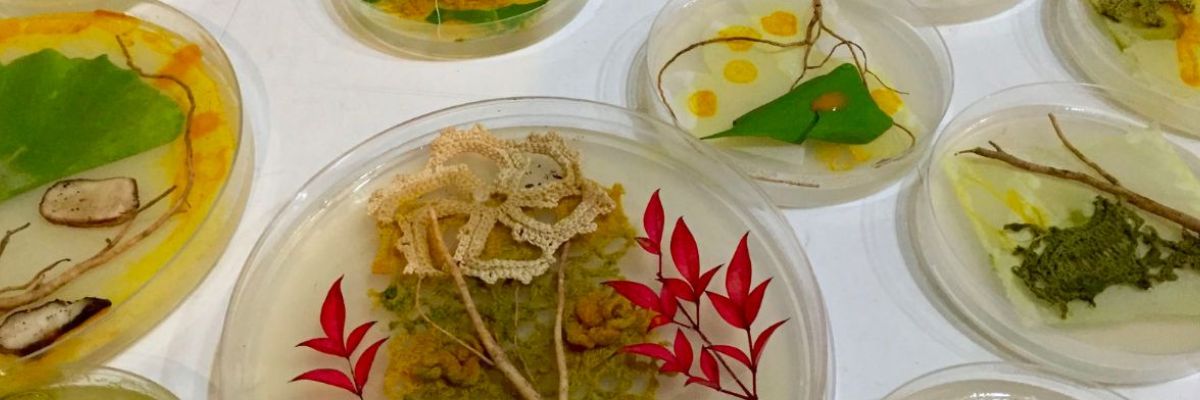
Art and Science (60391)
TR 8:20-9:40am
Professor Rich Pell and Dr. William Hatleberg
Art and Science were at one time seen as part of the same grand project, and more than ever each has something to teach about the limitations of the other. This is a hybrid theory and practice course exploring the complicated relationship between art and science. Through readings, discussions and projects, students will be introduced to the foundational concepts behind both the scientific and artistic approaches to understanding the world. Data, Machine, Nature, and Post-Nature will all be explored through the twin lenses of art and science.
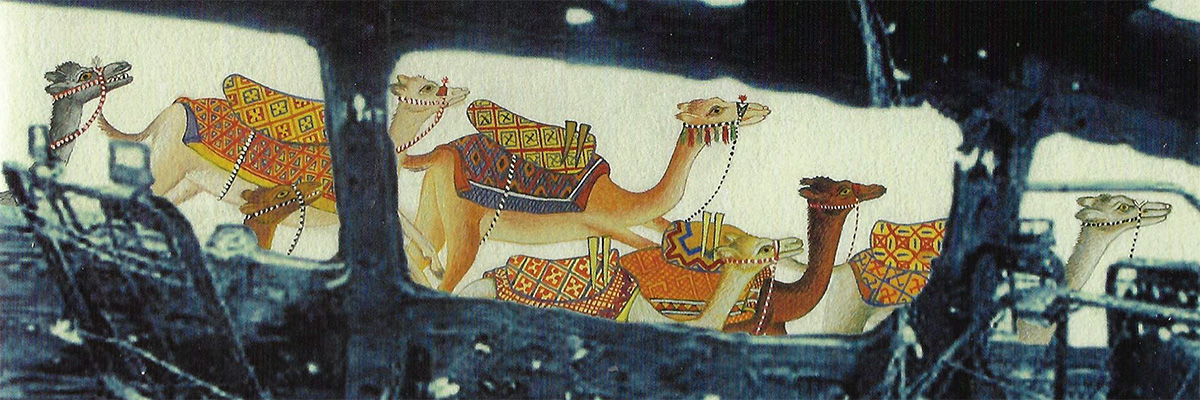
Art and Conflict (60397)
MW 12:00-1:20pm
Professor John Carson
These are turbulent times we are living through, with unnerving specters of conflict in seemingly irreconcilable political ideologies and environmental threat. What role do we have as artists within this malaise. Can art become a catalyst for meaningful change? This course will consider definitions of ‘conflict’ and look at artists whose work has responded to conflict, such as war and civil strife, and all manner of disputes from territorial to domestic. We will look internationally at colonial and imperial histories, and consider national struggles from Civil Rights to Black Lives Matter. We will examine how artists have expressed solidarity, observed, or engaged with ideological differences, abuses of power, injustice and the infliction of privilege; through commentary, protest, agit-prop and activism.
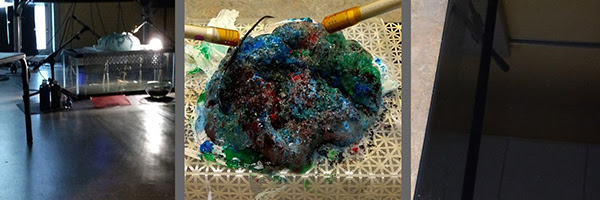
Experimental Sound Synthesis (60407)
10:30am-12:20pm
Professor Annie Hui-Hsin Hsieh
This is a course that will guide students into the world of experimental approaches to music and sound production, with particular emphasis in some of the key practices and concepts developed in the 20th and 21st centuries. We will examine a variety of ways in which sound works are made and perceived; understanding the historical perspectives and critical viewpoints of each approach through the application of hands-on practicum. The topics covered are: the art of sound, the use of technology in the production of sound works, and the creation of interdisciplinary sound installation. Students from different disciplines will work together to collaborate on the designing, prototyping and execution of a series of ambitious projects in response to the topics covered in class.

Animation Studio (60415)
TR 6:30-9:20pm
Professor Johannes DeYoung
This is an open animation studio for students who want to improve existing animation skills and develop a personal animated short. The class will introduce a variety of techniques and concepts for animation production. Using both 2D and 3D tools, animation will be explored through short assignments designed to develop diverse skills and ideas. Each student will develop and produce a short animation. The class will engage in discussion and critique of each other’s work along with examples of historic and contemporary animation.
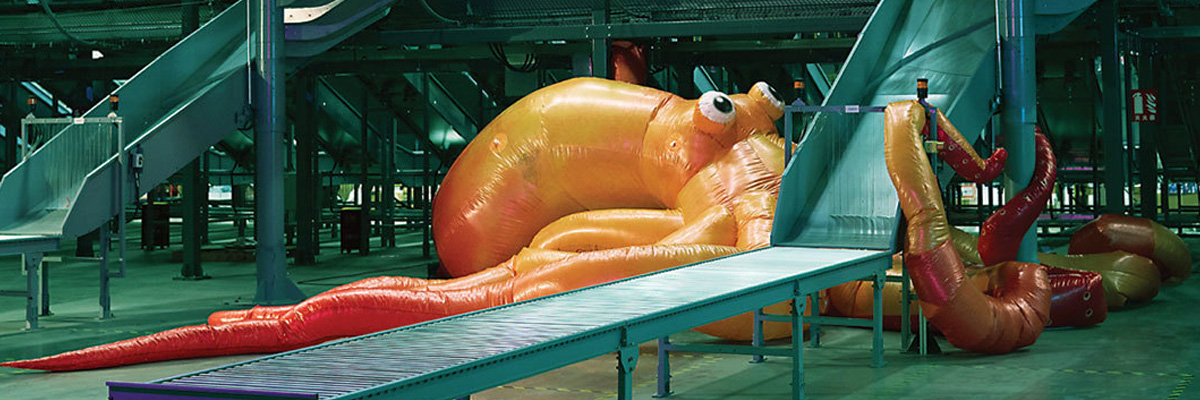
Moving Image Studio (60417)
MW 2:10-5:00pm
Professor Suzie Silver
This open moving image course is for students who want to develop their technical skills and conceptual development in the production of moving image media. Students may choose from an expansive array of technical and conceptual approaches including: narrative, animation, collage, activism, performance, essay, music video/visual music, non-fiction, abstract, interactive audio-visual systems, hybrid forms and much more. Class activities include screenings and discussions of contemporary and historical moving image media, visiting artist presentations, technical and conceptual workshops and tutorials, studio time, and presentation and feedback of student work. Each student will receive an iPhone 11 Cinematography Kit for the duration of the semester.
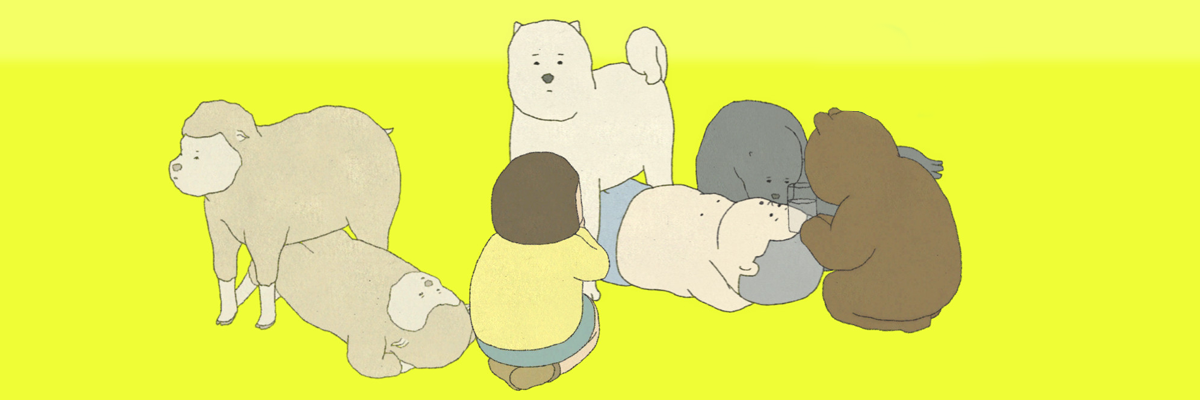
Experimental Game Studio: No More Video Games! (60419)
F 8:00-10:50am & 2:10-5:00pm
Professor Paolo Pedercini
Let’s face it: there are too many videogames in this world. Luckily, game engines and game design principles can be used for a variety of purposes! This installment of Experimental Game Studio focuses on artful software, interactables, non-games, digital toys, procedural generators, educational applications, and other playthings. The course is divided in two parts: in the first half of the semester students will be asked to create a prototype every week starting from an open-ended prompt. In the second half, the most promising prototypes will be iterated, play-tested, and polished into complete projects. Students will work in teams, and will be introduced to a variety of tools for remote collaboration. Some programming experience is recommended but not required.

2D Animation (60426)
TR 8:00-10:50am
Professor Johannes DeYoung
2D Animation is an introduction to animation concepts, processes, and techniques through hands-on studio practice. Coursework emphasizes creative content production, experimentation, critical thinking, and collaboration. Pioneering works of historical avant-garde animation inform a series of open-ended project prompts, drawing reference to a wide spectrum of animation practice. Historical and theoretical examples guide coursework and class discussion. Through screenings, practical tutorials, readings and discussions, this class will explore contemporary currents in animation and character design, and expose students to a variety of conceptual, methodological, and technical resources.
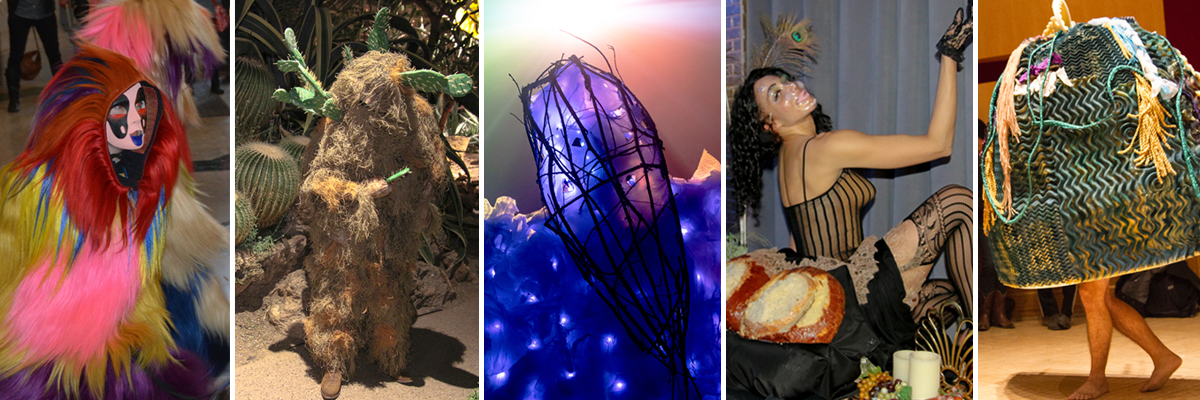
Activated Anamorphs: Performative Inhabitables and Interactive Prostheses (60496)
MW 2:10-5:00pm
Professor Scott Andrew
This remote only interdisciplinary studio course presents a hybrid of relationships between wearable sculpture and prosthetics, movement and identity-based performance for video and social media, and experimental fashion photography. The course emphasizes hands-on experience, the development of visual skills, craftsmanship, conceptual development, and performance techniques. Students will design and fabricate performative devices that alter, augment, mask, and transform the body and its inherent abilities. The course culminates in a series of virtual spectacles via live streaming events in collaboration with the School of Music’s Exploded Ensemble.
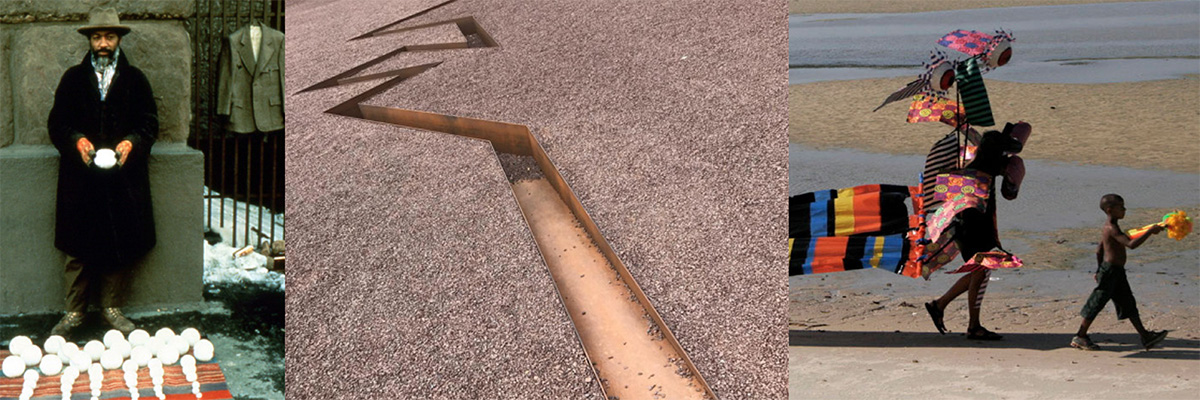
Out There: Post-Studio Practice (60493)
MW 8:00-10:50am
Professor John Carson
Since the Dada movement began to erode the importance of institutional validation, artists have consciously chosen to operate outside of a studio context in a variety of ways. The eighties saw the emergence of movements and artist-run organizations intent on removing institutional barriers for art practice, enabling performance, civic engagement, social and political intervention, and myriad other approaches to feed the dialogues surrounding art and culture. This class will consider the philosophical, ideological, aesthetic, and political motivations, which influence such artists and organizations and will look at writers who have provided a corresponding critical framework. Students will engage in research and reading to develop their own project(s), using the class as a space for dialog and development, and the time outside of the class as the space for execution and manifestation.
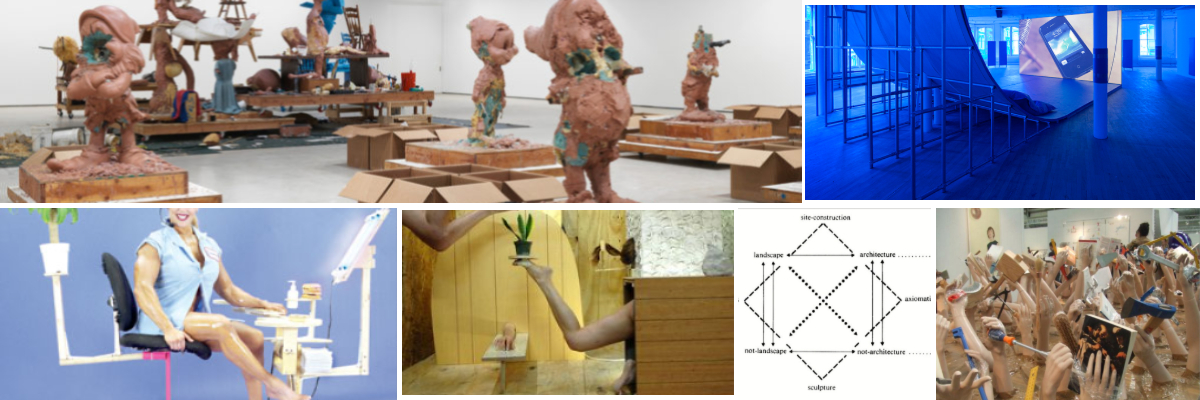
Open Sculpture (60430)
MW 8:00-10:50am
Professor Isla Hansen
Open Sculpture is a project-based studio that allows for student-driven development of an artistic practice in sculpture, installation, and systems. Ours is a widely inclusive and experimental definition of “sculpture,” encouraging interdisciplinary approaches. Artists will create 2 to 3 major projects and hone their individual sense of creative identity through the development of personal research interests, aesthetic sensibilities, and their own critical language surrounding common themes through their projects. An emphasis will be placed on extremely contemporary art and digital documentation / interaction, in acknowledgement of our hybrid digital-physical learning circumstances.
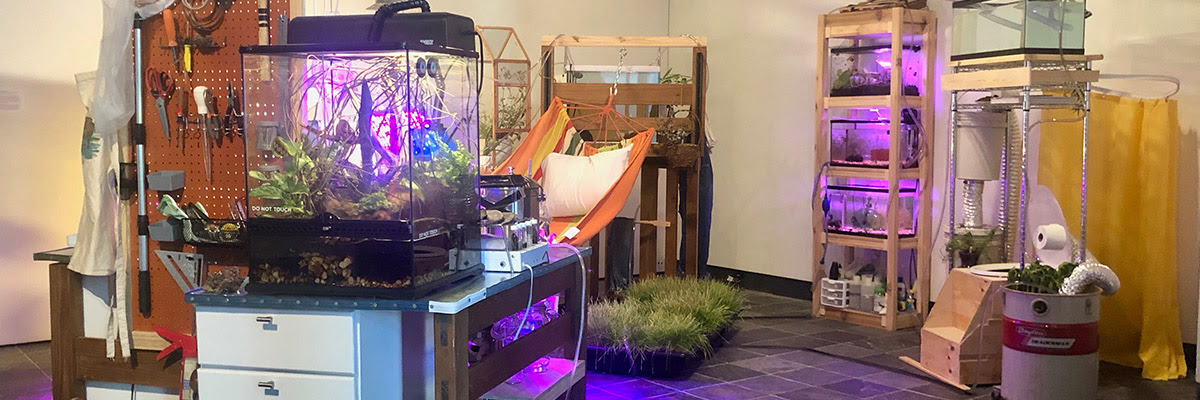
Environmental Sculpture (60437)
MW 2:10-5:00pm
Professor Bob Bingham
This is a studio course focusing on sculpting with the environment that includes object making, installations and site work with an emphasis on ecological materials, growing systems, environmental impact and related issues. Students are required to explore and develop proposal-making skills in order to acquire permission for sites in which to implement projects. Both individual and collaborative projects are possible.
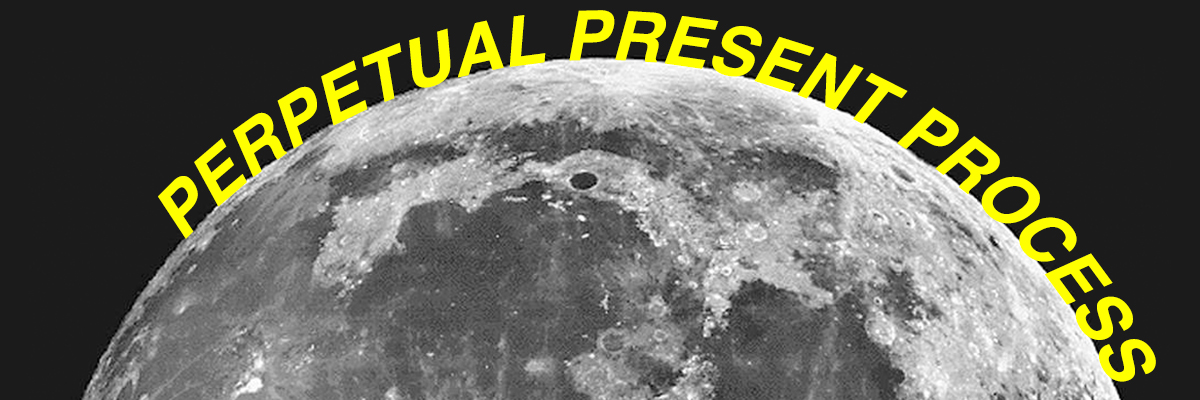
Perpetual Present Process (60495)
MW 6:30-9:20pm
Professor Halsey Rodman
This interdisciplinary course explores an expansive definition of process. While this term has often been associated with material process (i.e. how something is made physically), we will work to extend its scope to consider artwork as a continuously present process inclusive of thought, research, action, contemplation, and states beyond and between. A process of making does not appear spontaneously, but rather emerges from a field of specific material and conceptual conditions. How can we work with these conditions to allow our own unique processes to materialize? The seminar will combine reading/discussion with group critique and an incremental weekly assignment.
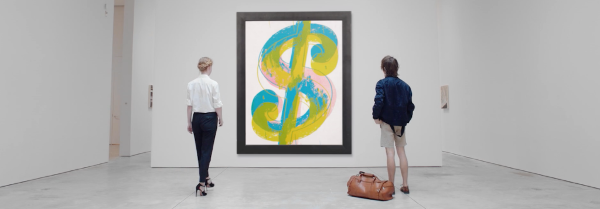
Professional Development for Creative Practices (60350)
MW 12:00-1:20pm
Professor Tom Hughes
Supporting a creative practice as a sustainable career—whether individual studio practice, employee or entrepreneur—requires a foundational knowledge of basic organizational, legal, and financial structures and practices. Throughout this seminar-style course, students will develop a starting knowledge of basic business concepts; a foundational understanding of ethics and best practices; problem-solving skillsets and methodologies for managing projects and programs; and apply these learnings to their own creative practices. Topics will include basic business structures; intellectual property; Contracts and employment; earned income and fundraising; financial management and taxes; marketing and communications; and strategy development.
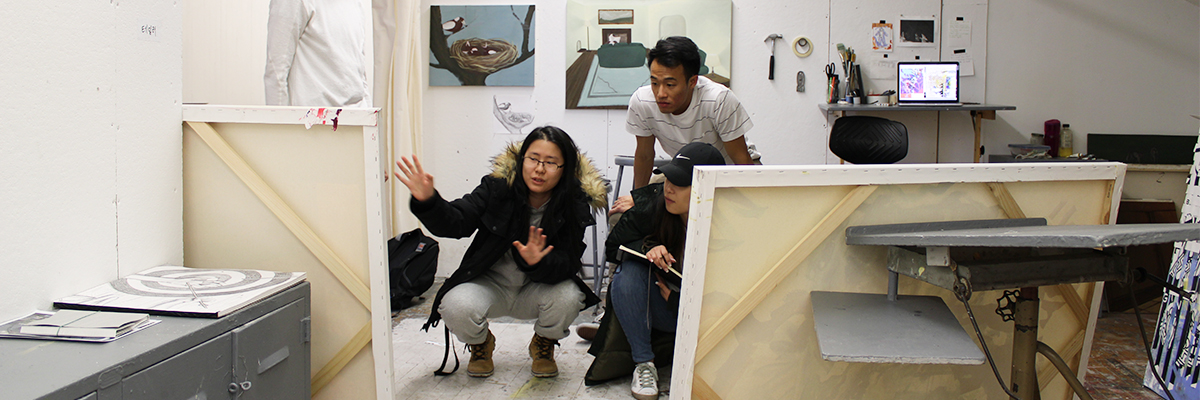
Senior Studio (60401)
TR 2:10-5:00pm
Professors James Duesing, Andrew Johnson, Joe Mannino, and Alisha Wormsley
Students continue a comprehensive two-semester capstone project. Each student pursues an ambitious and cohesive body of work with guidance by a team of School of Art faculty. Multimedia, multidisciplinary, and collaborative work is encouraged. Studio work is supplemented by group critiques, workshops on writing, professional presentation skills, career preparation, and technical instruction as needed. Attendance at all 6:30pm School of Art Lecture Series events is required for this class. Open to seniors in the School of Art, or by instructor permission.
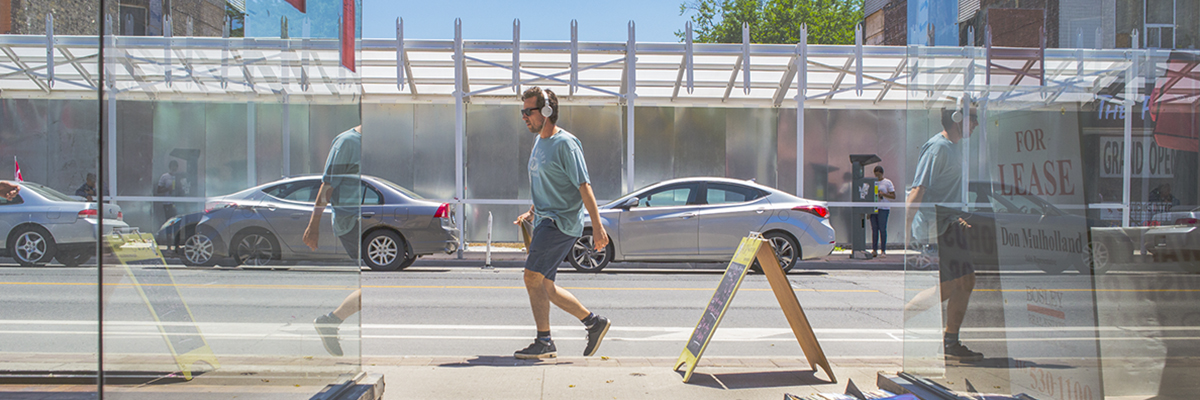
Photographic Problems (60209)
MW 6:30-9:20pm
Professor Leo Hsu
Garry Winogrand used the term “photographic problem” to explain his practice: “I photograph to find out what something will look like photographed.” Other photographers are driven by other problems: How can a photograph make the invisible visible? What does it mean for a narrative to be imposed onto a subject? How can one understand the past in a photo made today? What kind of authorship can be assigned to an appropriated image? In this course students will work towards identifying their own photographic problem through a series of exercises, critiques, writing prompts, and research. The course is a studio workshop involving photography, writing and presentations, with exercises and a personal project.
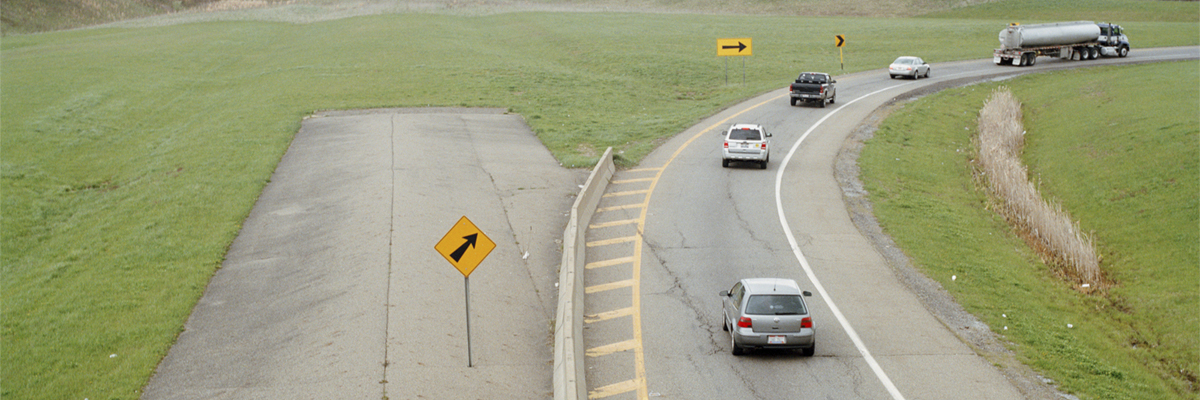
Unfolding Environments: The Intersection of Person and Place (60240)
MW 2:10-5:00pm
Professor Ross Mantle
In this course students will use photography to develop projects that study our social environments and personal landscapes. This studio explores the ways photography can combine form and concept to derive meaning from place. Students will be assigned two projects for the semester. The first will be a brief study of a familiar space. The second will comprise the remainder of the semester, concentrating on a single location of the student’s choosing. Students will photograph and research their chosen place’s function, its history, and its relationship to broader concepts and comparative spaces. A series of prompts, readings, lectures, and critiques will help students build their project and develop new ways to approach their subject matter as they create a long-form narrative.
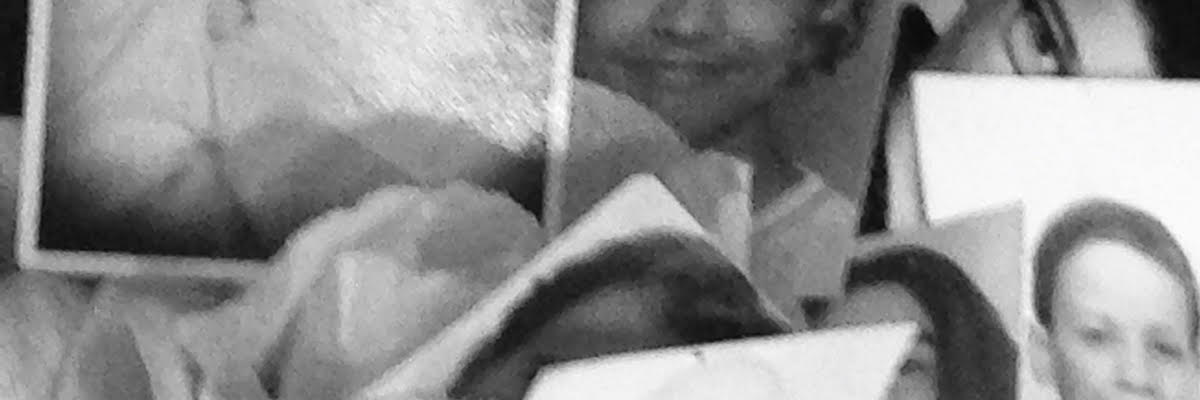
Black and White Photo II (60241)
TR 2:10-5:00pm
Professor Jamie Gruzska
This course allows you to gain experience with medium and large format film cameras while emphasizing aesthetic development and personal artistic growth. As an advanced student, you have access to an unusual assortment of panoramic and pinhole cameras that will change the way you make photographs, revealing unknown perspectives. Additional topics include digital process though negative scanning and inkjet printing, advanced monotone printing methods, and a focus on exhibition and folio presentation.
